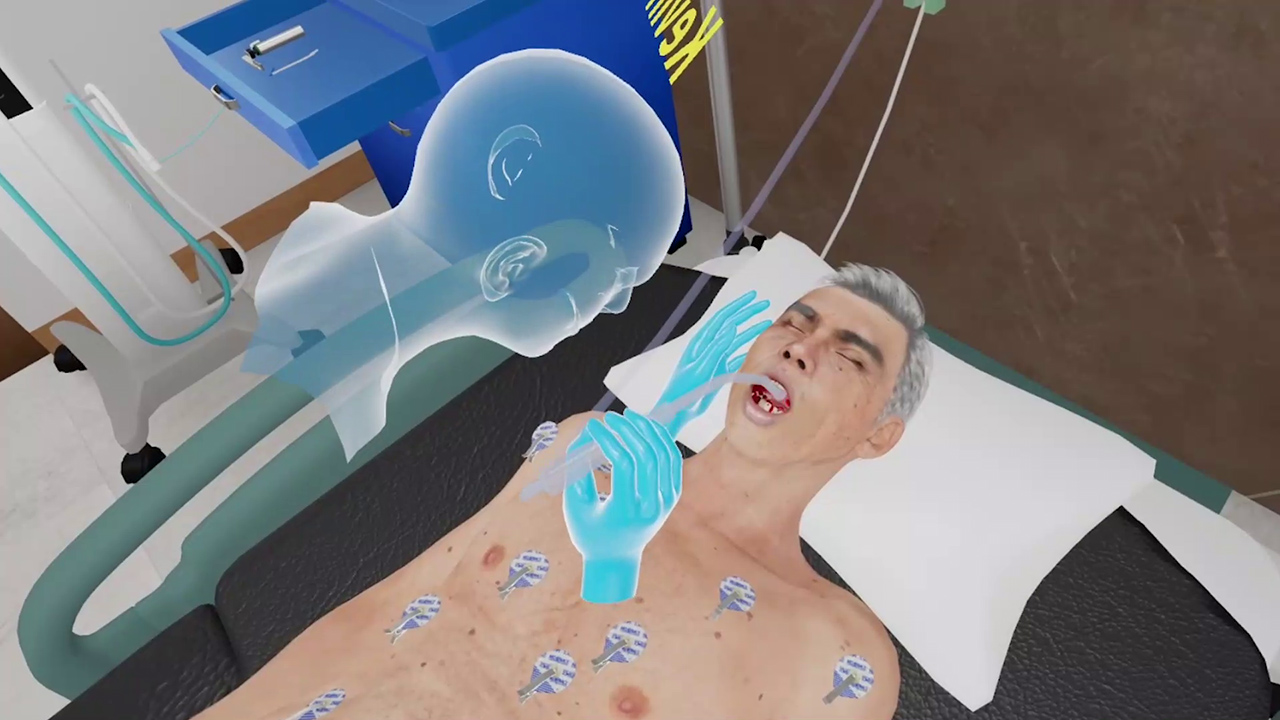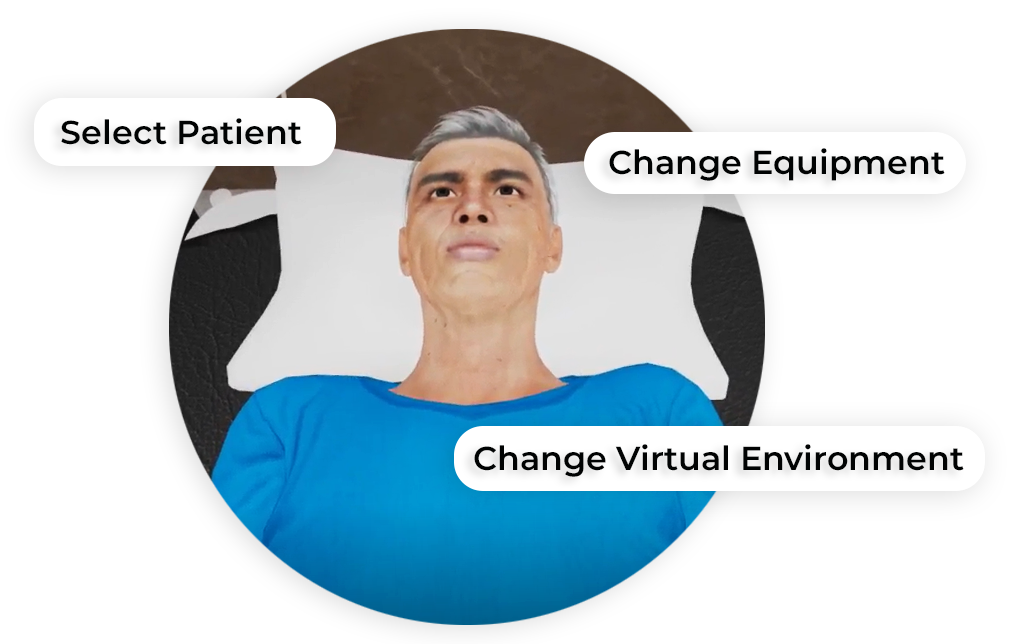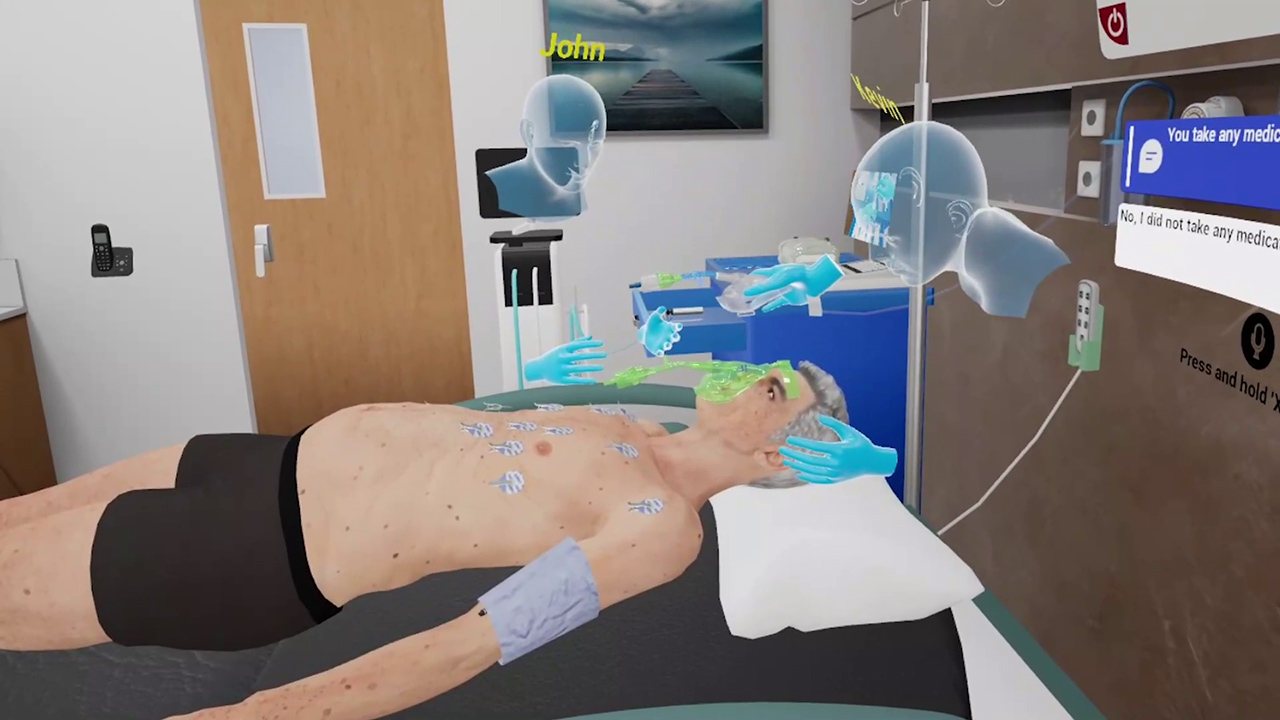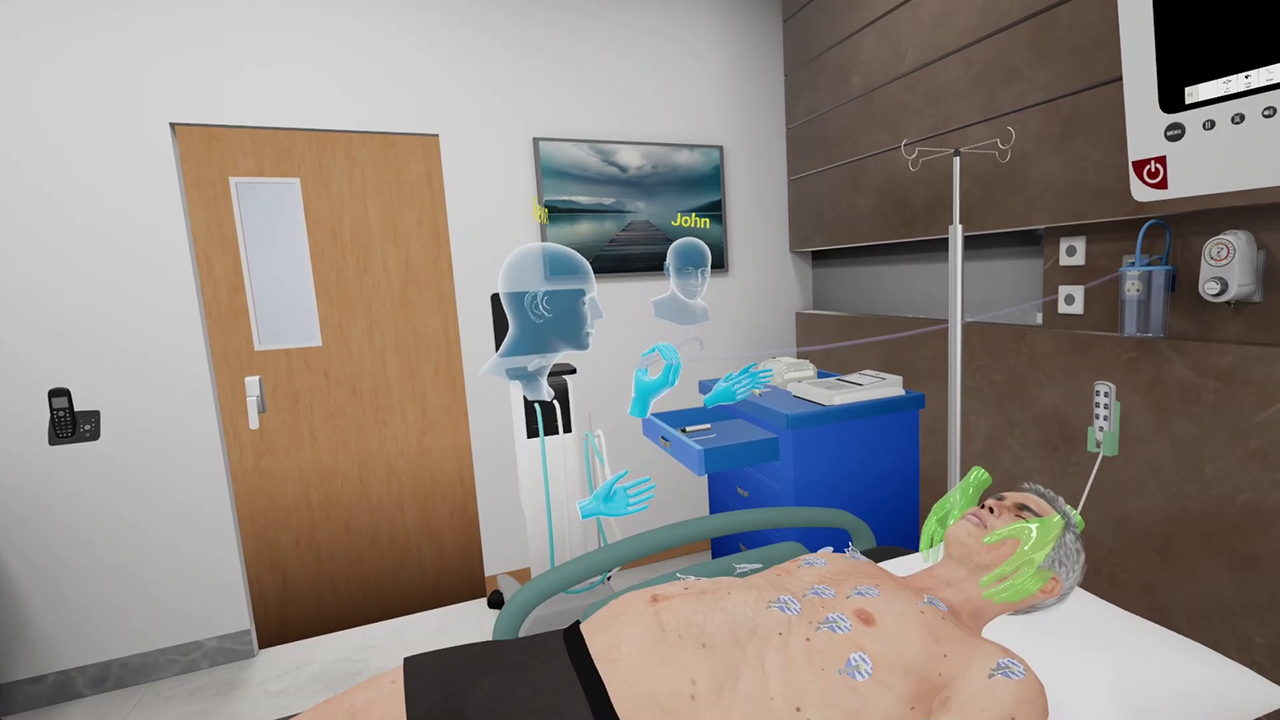Massive Hemoptysis
Akito Tanaka, a 63-year-old male, is brought into the emergency department with symptoms consistent with COPD exacerbation. He has a former smoking history, COPD on home O2, and is on anticoagulation for atrial fibrillation.
This multiplayer VR session is designed to enable learners to recognize massive hemoptysis as an airway emergency and make arrangements for an effective airway securement plan and adjunct management.
- Recognize decompensation of patient and need for definitive airway
- Recognize life threatening bleeding and reverse anticoagulation
- Approach appropriate specialists for continued management of massive hemoptysis

- Tintinalli J et al. Tintinalli’s Emergency Medicine: A Comprehensive Study Guide. Eighth edition. New York: McGraw-Hill Education, 2016.
- Davidson K, Shojaee S. Managing Massive Hemoptysis. Chest. 2020 Jan;157(1):77-88. Epub 2019 Jul 30.
Customize Your Program
Get rid of the editor. Adopt in-VR customization.
MedVR Education is bringing to you in-VR customization that will enable you to put together your own simulations by making selections from a wide range of feature choices.
- Select patient from a diverse background
- Choose preferred virtual environment
- Configure patient vitals
- Define simulation duration
- Create patient history and train with AI-Humans
- Customize session-end debriefing
- …..many more to come

 AI Patient Assessment
AI Patient Assessment Natural Language Processing
Natural Language Processing Multi-player
Multi-player
Sessions Physics-based Interaction
Physics-based Interaction
Core Skills Training

COPD with Massive Hemoptysis
As part of this open scenario, learners will initiate treatment with traditional therapies for COPD exacerbation and positive pressure ventilation. Though the patient responds well to the initial treatment, he soon develops a coughing fit and hemoptysis with compromised airway. Learners will then be required to secure the airway, reverse anticoagulation, and manage massive hemoptysis. A call will have to be placed to an ICU doctor for further consultation.
All necessary affordances are made available to learners to assist them in performing their tasks with efficiency and effectiveness.
Debriefing
End-of-task debriefing to assess one’s performance, evaluate actions, and get the most out of the training. Examples of topics being touched upon in the debriefing include the following:
- Thorough patient assessment
- Completion of necessary steps
- Correct medication administration to patient
- Sequential completion of task
- Execution of time-sensitive tasks







